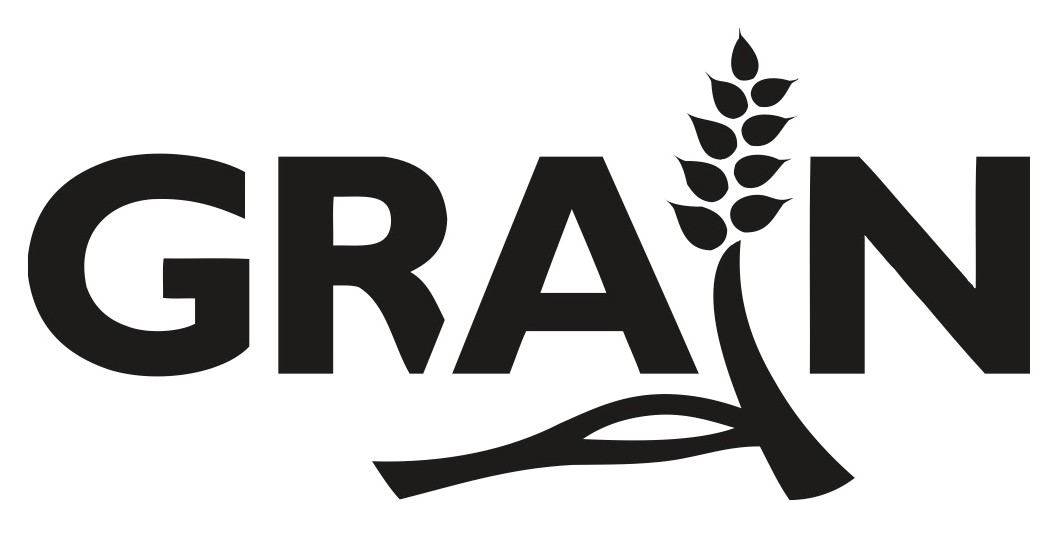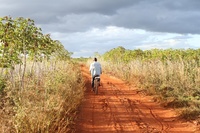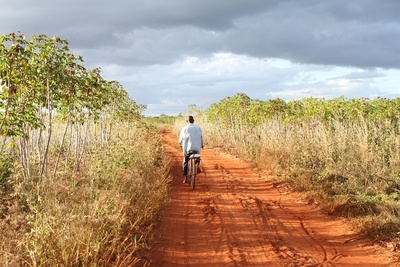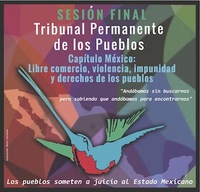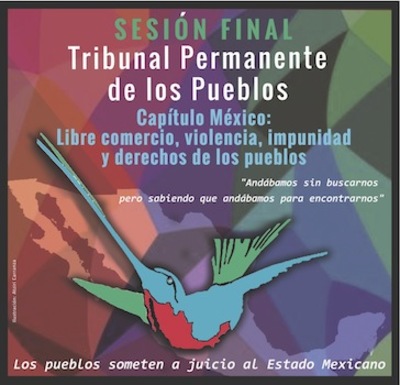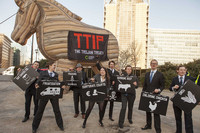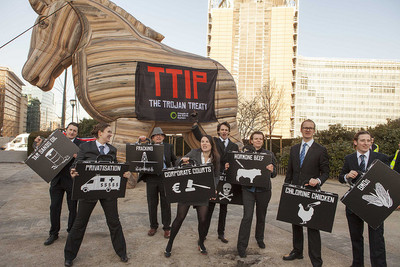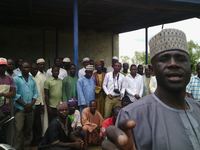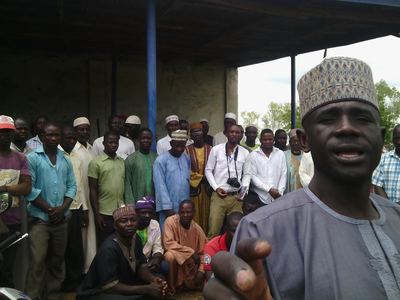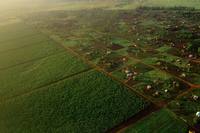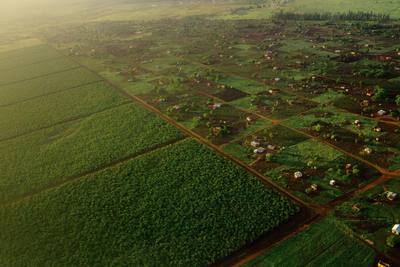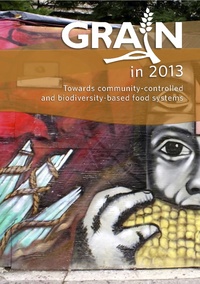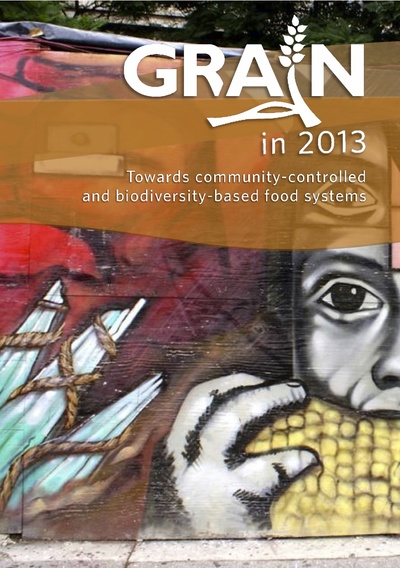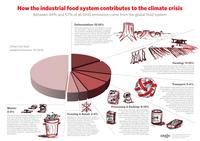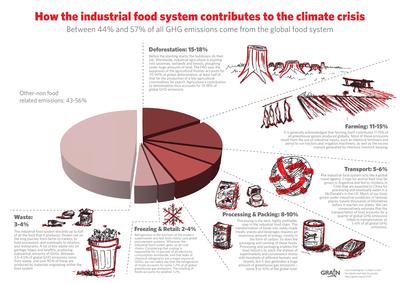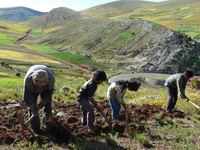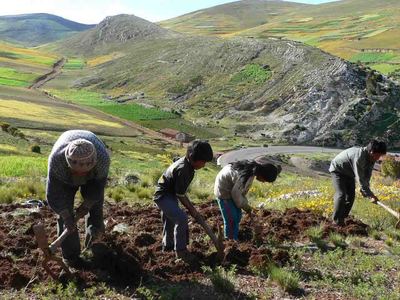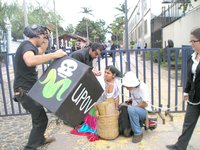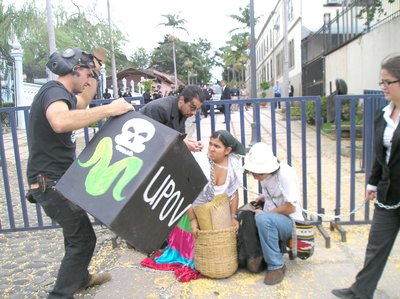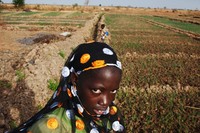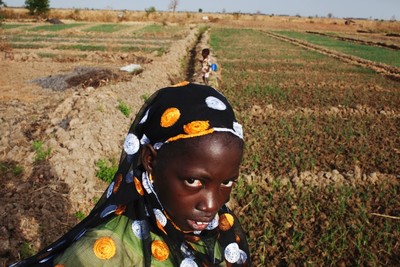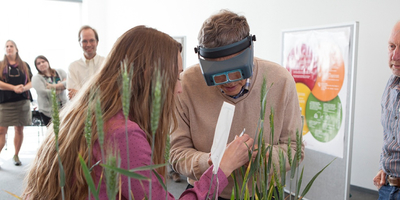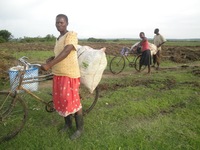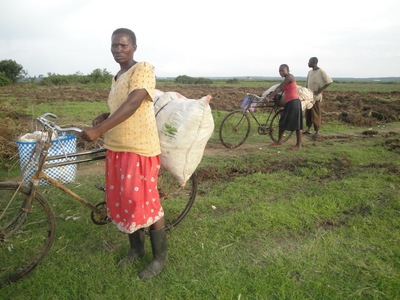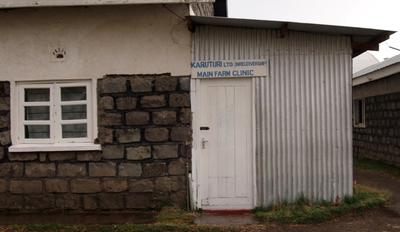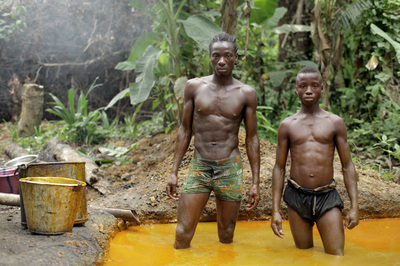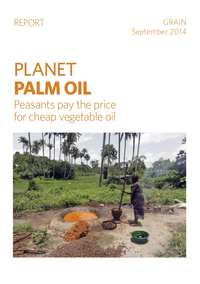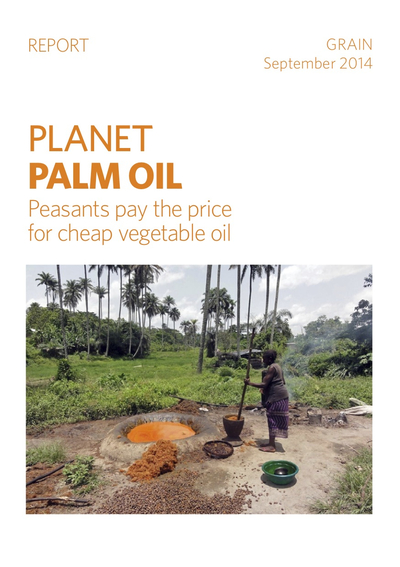by UNAC | GRAIN | 19 Feb 2015 Land
A new report by Mozambique's National Farmers' Union (UNAC) and GRAIN shows there is a colonial-style scramble for Africa's farm lands under way. Politically-connected companies based in offshore tax havens have grabbed hundreds of thousands of hectares of farmland from peasants in Mozambique.
A new report by Mozambique's National Farmers' Union (UNAC) and GRAIN shows there is a colonial-style scramble for Africa's farm lands under way. Politically-connected companies based in offshore tax havens have grabbed hundreds of thousands of hectares of farmland from peasants in Mozambique.
by GRAIN | 10 Feb 2015 Corporations
During twenty workshops, five pre-hearings, a final hearing and a complementary hearing of the Permanent People's Tribunal in Mexico, various communities and organisations exposed the vast and systematic character of the attack against the peasantry and independent food production.
The purpose of this text is to present the Mexican case as a mirror in which other countries may see the first hand effects of the subordination implicit in free trade agreements.
During twenty workshops, five pre-hearings, a final hearing and a complementary hearing of the Permanent People's Tribunal in Mexico, various communities and organisations exposed the vast and systematic character of the attack against the peasantry and independent food production.
The purpose of this text is to present the Mexican case as a mirror in which other countries may see the first hand effects of the subordination implicit in free trade agreements.
by GRAIN, FOEE, IATP, and others | 5 Feb 2015
The trade agreement being negotiated between the US and EU threatens public health, consumer rights and animal welfare standards. This is documented in a new report co-published by FOEE, IATP, Centre for Food Safety, Compassion in Wolrd Farming, and GRAIN. The criticisms come as negotiators from both sides of the Atlantic meet behind closed doors in Brussels, Belgium this week to start writing new food safety rules for the trade deal and as hundreds of people demonstrated against the ‘Trojan Horse Treaty’.
The trade agreement being negotiated between the US and EU threatens public health, consumer rights and animal welfare standards. This is documented in a new report co-published by FOEE, IATP, Centre for Food Safety, Compassion in Wolrd Farming, and GRAIN. The criticisms come as negotiators from both sides of the Atlantic meet behind closed doors in Brussels, Belgium this week to start writing new food safety rules for the trade deal and as hundreds of people demonstrated against the ‘Trojan Horse Treaty’.
by Environmental Rights Action / Friends of the Earth Nigeria | Center for Environmental Education and Development (CEED) | 28 Jan 2015 Land
Farmers in Taraba State refuse to give up their lands for massive rice plantation project backed by the G8
Farmers in Taraba State refuse to give up their lands for massive rice plantation project backed by the G8
by AFSA | GRAIN | 21 Jan 2015 Land | Seeds
The lobby to industrialise food production in Africa is changing seed and land laws across the continent to serve agribusiness corporations. The end goal is to turn what has long been held as a commons into a marketable commodity that the private sector can control and extract profit from at the expense of small holder farmers and communities.
The lobby to industrialise food production in Africa is changing seed and land laws across the continent to serve agribusiness corporations. The end goal is to turn what has long been held as a commons into a marketable commodity that the private sector can control and extract profit from at the expense of small holder farmers and communities.
by GRAIN | 10 Dec 2014 Activity reports
Corporations, power and the global food system; people's control over seeds; land grabbing; and agriculture and the climate crisis – these are the interconnected themes of GRAIN's work. In partnership with allies across the world. In partnership with allies across the world, we document the ways in which the industrial food system damages lives, livelihoods and ecologies, and support the fight for alternatives.
Corporations, power and the global food system; people's control over seeds; land grabbing; and agriculture and the climate crisis – these are the interconnected themes of GRAIN's work. In partnership with allies across the world. In partnership with allies across the world, we document the ways in which the industrial food system damages lives, livelihoods and ecologies, and support the fight for alternatives.
by La Vía Campesina and GRAIN | 5 Dec 2014 Climate
La Via Campesina and GRAIN explain how a worldwide redistribution of lands to small farmers and indigenous communities – combined with policies to support local markets and ecological agriculture – can reduce global greenhouse gas emissions by half within a few decades, significantly curb deforestation and meet the food needs of the world's growing population.
La Via Campesina and GRAIN explain how a worldwide redistribution of lands to small farmers and indigenous communities – combined with policies to support local markets and ecological agriculture – can reduce global greenhouse gas emissions by half within a few decades, significantly curb deforestation and meet the food needs of the world's growing population.
by La Vía Campesina | GRAIN | 5 Dec 2014 Climate
A global effort to give small farmers and indigenous communities control over lands is the best hope we have to deal with climate change and feed the world’s growing population.
A global effort to give small farmers and indigenous communities control over lands is the best hope we have to deal with climate change and feed the world’s growing population.
by GRAIN | 18 Nov 2014 Seeds
All around the world, the basic practice of saving seeds from one season to the next is being turned into a criminal offence, so that half a dozen large multinational corporations can turn seeds into private property and make money from them. GRAIN has just produced an updated dataset tracking how free trade agreements are privatising seeds across the world.
All around the world, the basic practice of saving seeds from one season to the next is being turned into a criminal offence, so that half a dozen large multinational corporations can turn seeds into private property and make money from them. GRAIN has just produced an updated dataset tracking how free trade agreements are privatising seeds across the world.
by GRAIN | 7 Nov 2014
In the last 50 years, a staggering 140 million hectares – the size of almost all the farmland in India – has been taken over by four industrial crops: soya bean, oil palm, rapeseed and sugar cane. And this trend is accelerating.
In the last 50 years, a staggering 140 million hectares – the size of almost all the farmland in India – has been taken over by four industrial crops: soya bean, oil palm, rapeseed and sugar cane. And this trend is accelerating.
by GRAIN | 4 Nov 2014
Since the Bill and Melinda Gates Foundation added “feeding the world” to its objectives almost a decade ago, it has channelled an impressive three billion dollars towards agricultural projects, much of it to improve farming in Africa. But GRAIN analysed the foundation's agricultural grants records for the past decade and reached some sobering conclusions.
Since the Bill and Melinda Gates Foundation added “feeding the world” to its objectives almost a decade ago, it has channelled an impressive three billion dollars towards agricultural projects, much of it to improve farming in Africa. But GRAIN analysed the foundation's agricultural grants records for the past decade and reached some sobering conclusions.
by GRAIN | 23 Oct 2014 Land
A June 2014 interview with farmer Erastus Odindo about his community's struggle to defend their lands from US-based Dominion Farms
A June 2014 interview with farmer Erastus Odindo about his community's struggle to defend their lands from US-based Dominion Farms
by Tax Justice Network, Forum Syd Kenya, GRAIN, Anywaa Survival Organisation, South Indian Coordination Committee of Farmers Movements | 9 Oct 2014 Media releases
Karuturi Global Ltd, the Indian multinational that made its name in the global cut flower industry and recently acquired more than 300,000 ha in Ethiopia to produce food for foreign markets, is continuing its painful and massive decline.
Karuturi Global Ltd, the Indian multinational that made its name in the global cut flower industry and recently acquired more than 300,000 ha in Ethiopia to produce food for foreign markets, is continuing its painful and massive decline.
by GRAIN | 7 Oct 2014
An IT billionaire's foray into agribusiness paints a disturbing picture of today's farmland financiers.
An IT billionaire's foray into agribusiness paints a disturbing picture of today's farmland financiers.
by GRAIN | 22 Sep 2014
Expanding production of cheap palm oil comes at a high price. Destruction of rainforests, labour exploitation, and brutal land grabbing: these are just a few of the nasty consequences that come with today's oil palm plantations.
With palm oil companies finding lands in Indonesia and Malaysia more difficult to acquire, attention is shifting to Africa. Over the past fifteen years, foreign companies have signed over 60 deals covering nearly 4 million hectares in central and western Africa for the development of oil palm plantations. The land grabs are already generating violent conflicts in several African countries.
Expanding production of cheap palm oil comes at a high price. Destruction of rainforests, labour exploitation, and brutal land grabbing: these are just a few of the nasty consequences that come with today's oil palm plantations.
With palm oil companies finding lands in Indonesia and Malaysia more difficult to acquire, attention is shifting to Africa. Over the past fifteen years, foreign companies have signed over 60 deals covering nearly 4 million hectares in central and western Africa for the development of oil palm plantations. The land grabs are already generating violent conflicts in several African countries.
